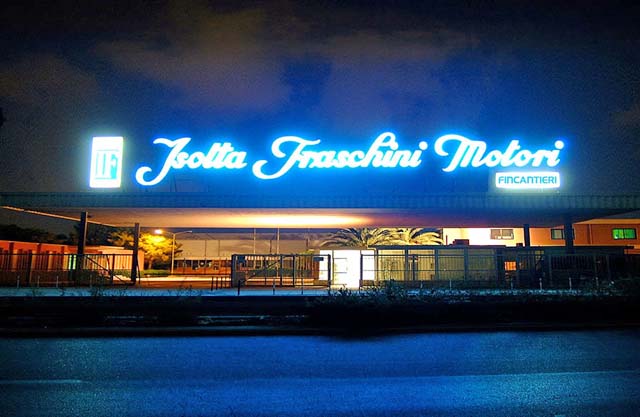Fincantieri Group company Isotta Fraschini Motori (IFM), which designs, builds and markets engines, gensets and thrusters, has inaugurated a new Innovation and Development Centre (CIS) at its Trieste headquarters.
Pierroberto Folgiero, CEO Fincantieri, said: “This is an essential step for our Isotta Fraschini, involved in its own right in the technological innovation programme laid out by the new business plan, that relaunches the synergy between the company and the Group’s naval and merchant ships divisions. The new CIS is an important piece of a strategy heavily promoted by Fincantieri that will lead to the definition of increasingly efficient and sustainable products, those of the future”.
CIS, with 32 new personnel, will primarily be tasked with developing ‘IFuture’, a complex engineering and industrialisation plan that comprises:
- a constant improvement of reliability of the engines currently in production;
- the making of an industrial version of the current genset engines, for industrial application on dry land;
- the study of new power management systems that manage numerous energy production sources, including renewables: fuel cells, batteries, internal combustion engines, turbines, photovoltaic and others, integrating them together to optimise energy supply in complex equipment;
- the launch of a new engine design – aimed at meeting the market’s demands of the upcoming years in terms of power and reduced emissions – focussing on technologies that contribute to the energy transition and whose final objective is to use hydrogen.
It is from that strong focus on hydrogen that ‘IFuture Hydrogen’ came into being, backed by funds provided by the Ministry of Enterprises and Made in Italy and the European Important Project of Common European Interest (IPCEI) Hy2Tech fund. This programme will lead to development of two distinct marine hydrogen-powered products: a family of internal combustion engines and a modular fuel cell platform. Both will be dedicated to a power range falling between 500 and 4,000kW and they will reduce CO2 emissions to values close to zero.



